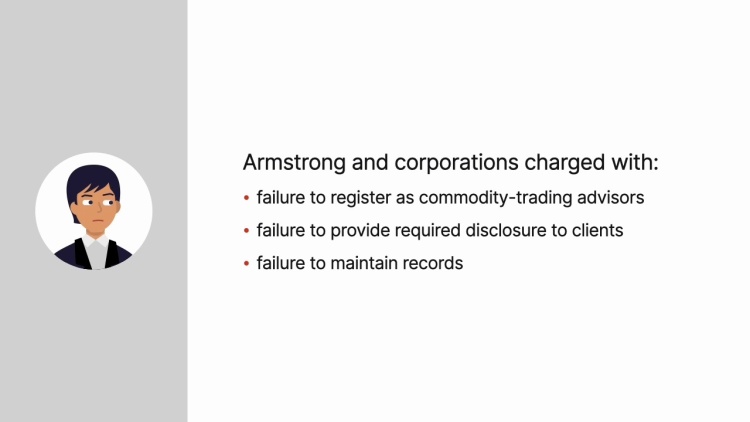Armstrong v. Commodity Futures Trading Commission
United States Court of Appeals for the Third Circuit
12 F.3d 401 (1993)
- Written by Robert Cane, JD
Facts
Martin Armstrong (defendant) controlled three corporations that provided various commodities-trading services. The Commodity Futures Trading Commission (the commission) (plaintiff) filed an administrative complaint against Armstrong and his three corporations for procedural violations. Two years later, the commission filed a second administrative complaint, charging that Armstrong was personally liable for the violations of two of his corporations as a controlling person of the corporations under § 13(b) of the Commodity Exchange Act, among other charges. Section 13(b) imposes liability for violations of commission rules on a person who controls any person or entity that commits a violation if the controlling person did not act in good faith or knowingly induced the violation. The administrative law judge (ALJ) found Armstrong and the corporations liable, imposing sanctions and fines. Armstrong and the corporations appealed the ALJ’s decision to the commission. The commission reversed the ALJ’s finding under the first complaint of procedural violations. The commission affirmed, as “a substantially correct result,” the ALJ’s finding under the second complaint that Armstrong was liable for the violations of two of his corporations. Armstrong and his corporations appealed to the United States Court of Appeals for the Third Circuit.
Rule of Law
Issue
Holding and Reasoning (Seitz, J.)
What to do next…
Here's why 907,000 law students have relied on our case briefs:
- Written by law professors and practitioners, not other law students. 47,100 briefs, keyed to 996 casebooks. Top-notch customer support.
- The right amount of information, includes the facts, issues, rule of law, holding and reasoning, and any concurrences and dissents.
- Access in your classes, works on your mobile and tablet. Massive library of related video lessons and high quality multiple-choice questions.
- Easy to use, uniform format for every case brief. Written in plain English, not in legalese. Our briefs summarize and simplify; they don’t just repeat the court’s language.





